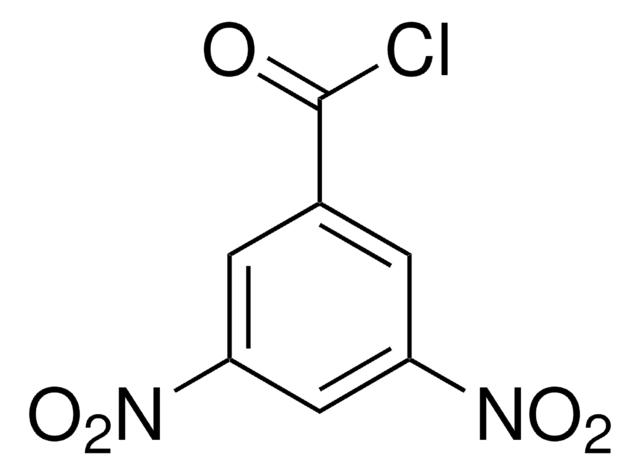D199303
2,4-Dinitrophenylhydrazine
reagent grade, 97%
Synonym(s):
(2,4-dinitrophenyl)-hydrazine, DNPH
About This Item
Recommended Products
grade
reagent grade
Quality Level
Assay
97%
contains
33% water (minimum)
mp
197-200 °C (lit.)
SMILES string
NNc1ccc(cc1[N+]([O-])=O)[N+]([O-])=O
InChI
1S/C6H6N4O4/c7-8-5-2-1-4(9(11)12)3-6(5)10(13)14/h1-3,8H,7H2
InChI key
HORQAOAYAYGIBM-UHFFFAOYSA-N
Looking for similar products? Visit Product Comparison Guide
General description
Application
Packaging
Signal Word
Danger
Hazard Statements
Precautionary Statements
Hazard Classifications
Acute Tox. 4 Oral - Desen. Expl. 1
Supplementary Hazards
Storage Class Code
4.1A - Other explosive hazardous materials
WGK
WGK 3
Personal Protective Equipment
Regulatory Listings
Regulatory Listings are mainly provided for chemical products. Only limited information can be provided here for non-chemical products. No entry means none of the components are listed. It is the user’s obligation to ensure the safe and legal use of the product.
FSL
Group 5: Self-reactive substances
Nitro compounds
Hazardous rank II
2nd self-reactive materials
JAN Code
D199303-25G:
D199303-VAR:
D199303-500G:
D199303-100G:
D199303-BULK:
Certificates of Analysis (COA)
Search for Certificates of Analysis (COA) by entering the products Lot/Batch Number. Lot and Batch Numbers can be found on a product’s label following the words ‘Lot’ or ‘Batch’.
Already Own This Product?
Find documentation for the products that you have recently purchased in the Document Library.
Our team of scientists has experience in all areas of research including Life Science, Material Science, Chemical Synthesis, Chromatography, Analytical and many others.
Contact Technical Service










